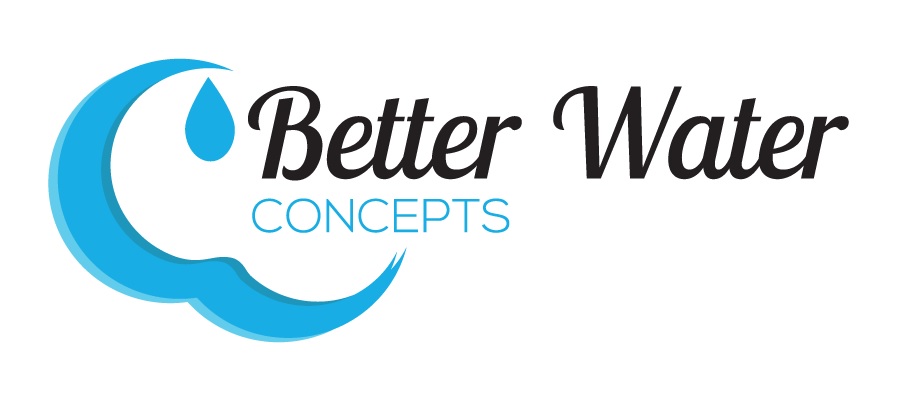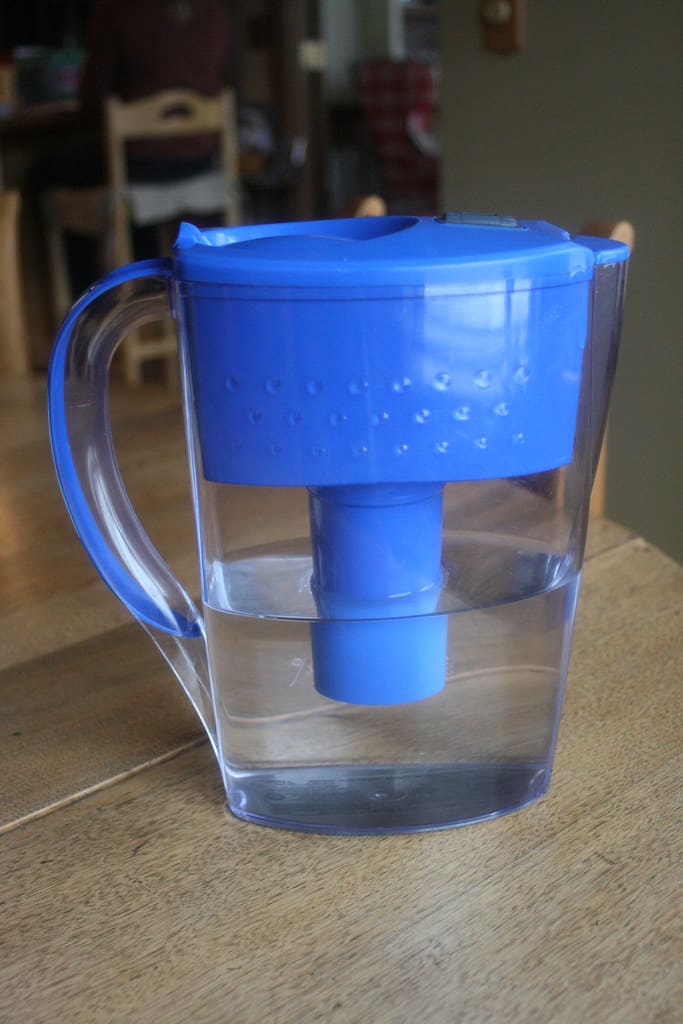Home Water Treatment
Do Water Filter Pitchers Work?
We're an affiliate
We hope you love the products we recommend! Just so you know, we may collect a share of sales or other compensation from the links on this page. Thank you if you use our links, we really appreciate it!
Do Water Filter Pitchers Work?
Many people are turning to water filter pitchers because they’re cheaper and more convenient, but do they work? The quick answer is yes.
However, there are a lot of variables that make filtering your tap water with a pitcher or faucet attachment difficult. Many people don’t know the difference between filtered and unfiltered water in terms of efficiency and quality.
Read on for everything you need to know about these devices!
What is a water filter pitcher?
A water filter pitcher is a type of filter that filters water before you pour it into a glass.
The pitcher usually has a lid with an opening on top to pour water in, and the filter will be inside the lid. You pour water into the top of the pitcher and then it passes through microscopic pores in its internal membranes as it flows down into a storage chamber. The pitcher uses activated carbon and/or ion exchange resins to do its filtering job.
Does a Water Filter pitcher remove contaminants like lead, chlorine, and mercury from the water?
Yes, depending on the pitcher you purchase, all three get removed. Lead and mercury are both heavy metals, whereas chlorine is an organic chemical compound (a chlorinated hydrocarbon).
In order to do their job, the filter membranes must use a very fine pore size, which can stop contaminants like these tiny enough that they cannot pass through it.
Another thing about water filter pitchers that is attractive to many consumers is them not removing healthy minerals from their drinking water.
Some water filters even remove fluoride from the water. The key is to look for filters tested against NSF Standards.
There are even some water filter pitchers, like the ZeroWater filter pitcher, that remove all the total dissolved solids and an array of contaminants. The ZeroWater filter pitcher even comes with a meter so you can tell when your filter cartridge needs to be changed.
What is NSF?
NSF stands for National Sanitation Foundation. In 1944, NSF was founded at the University of Michigan‘s School of Public Health. The purpose of NSF is to standardize sanitation and food safety requirements. This includes water filtration devices, including water filter pitchers.
NSF 42
The NSF 42 certification is a mark of quality for water filter pitchers and look for it. This certification means the filter reduces impurities like chlorine and taste and odor. These are aesthetic qualities that will improve the taste of the water. However, this standard does not improve the safety of the water.
NSF 53
The NSF 53 standard is one that reduces impurities that have a health effect. This standard lists over 50 contaminant reduction claims. The contaminants of interest to most include lead, Cryptosporidium, VOCs and chromium. There are water filter pitchers that are specially designed to remove fluoride, such as the Pure Water Freedom pitcher.
When selecting a water filter pitcher, be sure you get one that meets your needs. You should know, typically, the more contaminants the filter removes, the more it will cost.
NOTE: NSF certifies some water filters and lists them on their website here. Others are independently certified to NSF standards. Some may even carry a seal of the Water Quality Association or WQA. Filters with these indications are acceptable to purchase. If the company offers no independent testing or certification for the water filter pitcher, you shouldn’t purchase it.
Is it worth purchasing a water filter pitcher for your home or office?
Water filters are important if you want to avoid drinking water that has high levels of chemical contaminants. They can help lower your exposure to these contaminants and improve the health of your family.
There are many types of water filters on the market, but a pitcher filter is one type that many people have in their homes. These pitchers can take care of about 60 gallons of water, and they filter from any standard sink or faucet.
A major benefit is portability. You can move water filter pitchers from room to room. You can put them in the refrigerator. When you are traveling, you’ll know you have of clean, safe water if you take your water filter pitcher along. And if you move to a new house, you can take it with you.
The first question that comes to mind is do water filter pitchers work as well as a water faucet filter?
Let’s focus on water filter pitchers and compare them to water faucet filters. We will discuss the pros and cons that come with using a pitcher or a filter to get clean drinking water.
Pitcher: The first thing people notice is that water filter pitchers are cheaper than faucet filters. They also come in different styles, sizes, and colors that are aesthetically pleasing. Lastly, you can put them anywhere, since they don’t need an electrical outlet or installation.
Faucet: The first thing people notice is that they have a better quality of water because they use multiple filtration layers like carbon-based filters and reverse osmosis membrane. They also don’t take up any counter space, so their location doesn’t matter as much as it would for a pitcher filter. If your faucet filter doesn’t have a bypass valve, you could end up wasting filtered water washing your hands.
Are there any disadvantages to using a water filter pitcher in your kitchen or office?
A water filter pitcher is a great way to get filtered water, but they have some drawbacks.
It takes time to filter the water. It may be only a few minutes, but if you are in a hurry, that might be too long.
The filter may need to be replaced more often if are using it frequently.
There is also the risk of bacteria growth in the jug if it’s not cleaned properly.
If you want to use a filter pitcher for your kitchen or office, make sure that you are aware of these potential disadvantages and how to avoid them.
Tips on how to take care of your water filter pitcher
Flush Your New Filter Thoroughly
To do its best work, a pitcher filter needs to be primed when new. This means that you must fill it with tap water and then empty at least twice before you can drink the water from it. This procedure is necessary in order to do a proper job of rinsing the filter’s pores.
Change Your Filter as Required
The activated carbon used in some pitcher filters will eventually become saturated with contaminants and require replacement. This happens at different rates depending on how much water is drawn from the filter; if this water is hard, more buildup of salt crystals will take place on the carbon and that will speed up its replacement.
You should clean your water filter pitcher regularly
Although pitchers have a relatively simple design, the water filter pitcher has a few parts that can get dirty. It is best to clean your water filter pitcher every time you change the filter.
NOTE: Most water filter pitchers on the market are BPA free, but it’s a good idea to check.
Conclusion: The answer to whether water filter pitchers work really depends on who you ask.
A water filter pitcher will do a good job of filtering drinking water but it doesn’t do as good a job as do whole house filters and faucet mount pitchers do. These two types use more sophisticated filtration methods to remove contaminants from the water.
Many people who purchase water filter pitchers do so because they are temporary solutions to their problem. They do not have the time or money to do a better one, but they do at least want a solution that will do the job well.
A whole house filter system often costs thousands of dollars though and it makes more sense to use something simpler in most cases, and water filter pitchers are ideal for this purpose.

